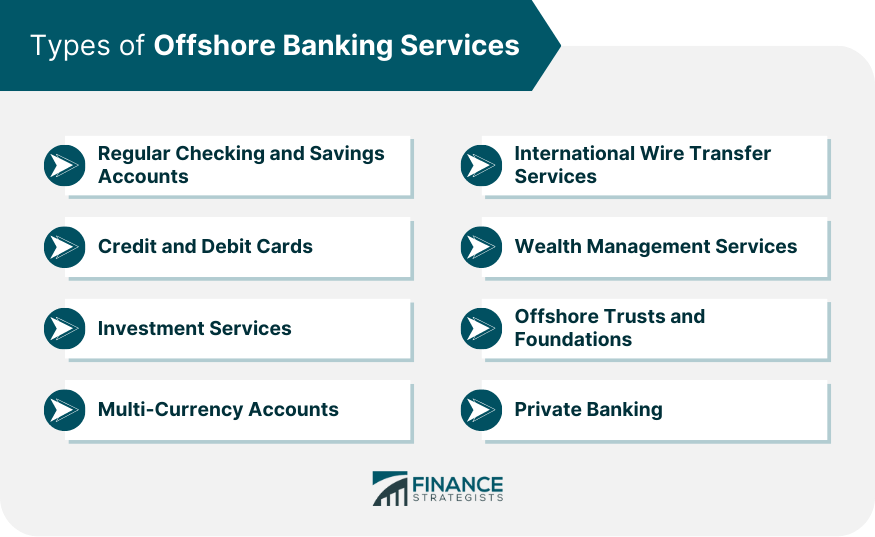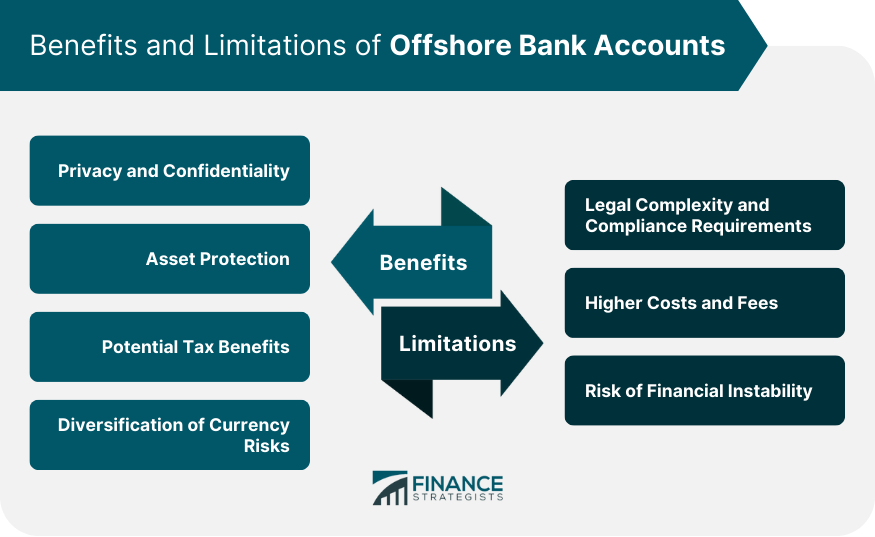Comprehending Offshore Company Formations: A Comprehensive Guide to the Refine and Advantages
Offshore company formations present a critical opportunity for entrepreneurs looking for to optimize their business operations. These entities frequently provide advantages such as tax obligation advantages, raised personal privacy, and robust asset protection. Nonetheless, comprehending the intricacies of choosing a territory, the development process, and compliance needs is necessary. As the landscape of global business advances, the ramifications of establishing an overseas company warrant mindful consideration. What actions should one require to browse this facility terrain?
What Is an Offshore Company?
An offshore business is an organization entity incorporated outside the territory of its proprietors' house, typically in a nation with desirable regulatory and tax obligation environments. These firms can offer various objectives, including asset protection, international trading, and riches administration. They are generally developed in territories known as tax places, where company tax prices are low or nonexistent, and privacy laws are strict.
Offshore firms may be possessed by people or various other business entities and can run in numerous industries, including consulting, shopping, and finance. While they supply specific advantages, the lawful and governing frameworks regulating offshore firms differ considerably by territory. Entrepreneur have to browse these complexities to guarantee compliance with both global and neighborhood legislations. Recognizing the framework and function of offshore companies is vital for people considering this choice for business procedures or asset monitoring.
Benefits of Forming an Offshore Business
While the choice to create an overseas firm might stem from different strategic considerations, the prospective advantages are engaging for many company owner. One significant advantage is tax obligation optimization; lots of overseas territories supply favorable tax prices and even tax exemptions, allowing business to maintain even more profits. Furthermore, overseas firms usually offer boosted privacy defense, protecting the identifications of investors and supervisors from public examination.


Organization owners may find functional flexibility, as overseas jurisdictions frequently have fewer governing difficulties, making it possible for streamlined monitoring and administration. Jointly, these benefits make overseas business formations an eye-catching alternative for lots of looking for to broaden their service perspectives.
Selecting the Right Territory
Selecting the suitable territory for an overseas business is a crucial action in making the most of the advantages laid out previously. Different variables affect this decision, consisting of tax policies, corporate laws, and the total organization atmosphere. Jurisdictions such as the British Virgin Islands, Cayman Islands, and Singapore are commonly favored for their favorable tax regimens and robust lawful structures.
It is essential to take into consideration the particular needs of the organization, such as privacy demands and regulative compliance. In addition, the simplicity of working, consisting of the effectiveness of firm registration and banking centers, plays a substantial role.
Prospective owners should also evaluate the political security and online reputation of the chosen jurisdiction, as these elements can impact long-lasting success. Ultimately, extensive research study and specialist examination are suggested to assure placement with the firm's goals and to utilize the complete possibility of offshore benefits.

The Offshore Company Development Process
The offshore business formation procedure includes a series of vital actions that need cautious planning and execution. Originally, companies or individuals need to select an ideal territory that straightens with their objectives, considering elements such as tax benefits, privacy, and governing environment. Following this, the next action requires selecting the appropriate company structure, such as an International Company Company (IBC) or Restricted Liability Company (LLC)
As soon as the framework is established, necessary documents, including a company strategy, recognition, and evidence of address, need to be prepared. Engaging a respectable local agent or company can simplify this phase, making certain compliance with neighborhood regulations. After submitting the called for paperwork to the appropriate authorities, the formation procedure typically culminates in the issuance of a certificate of unification. This paper develops the company as a legal entity, permitting it to perform organization internationally.
Lawful Demands and Compliance
Understanding the lawful needs and compliance commitments is crucial for any person seeking to develop an offshore business. Each jurisdiction has specific guidelines that need to be adhered to, which can consist of firm enrollment, getting necessary licenses, and keeping local addresses. Offshore Company Formations. It is essential to designate a signed up agent that can help with interaction with neighborhood authorities and warranty compliance with recurring reporting needs
In addition, several territories require the submission of annual monetary declarations, along with tax filings, even if the business does not Learn More Here produce revenue. Shareholders and directors have to be recognized, with due persistance procedures often mandated to validate their identities. Failing to meet these lawful obligations can lead to penalties or the dissolution of the company. Because of this, prospective offshore company proprietors must talk to legal specialists experienced in global company law to navigate these complexities effectively and ensure full conformity with all guidelines.
Tax Ramifications of Offshore Business
The tax obligation implications of offshore business existing substantial advantages that draw in many entrepreneurs. Comprehending the linked compliance demands is necessary for steering the complexities of international tax regulations. This section will certainly check out both the possible advantages and the required commitments associated to overseas company frameworks.
Tax Obligation Benefits Introduction
Although offshore business are frequently checked out with uncertainty, they can use substantial tax obligation advantages for companies and individuals seeking to enhance their financial approaches. Among the primary benefits is the possibility for reduced business tax obligation rates, which can cause substantial savings. Many offshore territories give positive tax regimes, including no or marginal tax obligation on revenues, funding gains, and inheritance. Additionally, offshore companies can help with international organization operations by minimizing tax obligation liabilities connected with cross-border transactions. This structure may likewise allow tax deferral possibilities, enabling earnings to grow without immediate tax. Ultimately, these advantages add to enhanced economic effectiveness and property security, making offshore business an appealing option for savvy investors and business owners.
Conformity Needs Described
Offshore business may provide tax benefits, yet they also feature a set of conformity needs that need to be very carefully browsed. These entities undergo certain reporting commitments, which vary considerably depending upon the jurisdiction. Commonly, offshore business need to keep accurate economic documents and send yearly financial declarations to conform with regional regulations. In addition, several territories require the disclosure of advantageous ownership to combat money laundering and tax evasion. Failing to abide by these conformity actions can result in serious charges, including check my source penalties and potential loss of organization licenses. Recognizing the regional tax regulations and international agreements is crucial, as they can impact tax obligations and overall functional legality. Engaging with economic and legal experts is advisable to ensure full compliance.
Preserving and Managing Your Offshore Firm
Preserving and managing an overseas business entails sticking to numerous continuous compliance demands crucial for lawful procedure. This consists of persistent monetary document maintaining and an understanding of tax obligation commitments significant to the business's territory. Effective management not just assures regulatory compliance yet likewise supports the business's economic health and wellness and longevity.
Ongoing Compliance Needs
Assuring ongoing conformity is crucial for any kind of entity operating in the offshore industry, as failure to meet regulative needs can bring about significant penalties or even dissolution of the company. Offshore firms must follow local legislations, which may include yearly declaring of economic statements, payment of essential costs, and keeping a registered office address. In addition, firms are usually called for to select a regional agent or rep to facilitate interaction with authorities. Regular updates on changes in regulation or tax obligation demands are important for compliance. Adherence to anti-money laundering (AML) and know-your-customer (KYC) policies is critical. By keeping organized records and staying informed, offshore firms can guarantee they stay certified and reduce risks related to non-compliance.
Financial Record Keeping
Reliable monetary document maintaining is important for the effective management of any kind of overseas company. Keeping exact and in-depth financial records help in tracking the firm's performance, assuring compliance with regional regulations, and helping with notified decision-making. Business ought to apply systematic processes for documenting earnings, expenditures, and purchases to produce transparency and liability. Utilizing accounting software can streamline this process, permitting for real-time economic evaluation and reporting. On a regular basis reviewing economic statements assists identify trends, examine profitability, and take care of cash circulation successfully. Additionally, it is vital to firmly store these documents to protect sensitive info and warranty easy accessibility during audits or financial reviews. By focusing on precise financial document maintaining, offshore companies can boost operational effectiveness and support long-term success.
Tax Obligation Commitments Overview
Recognizing tax obligations is crucial for the appropriate monitoring of an overseas business, as it straight impacts monetary performance and compliance. Offshore companies may undergo different tax legislations relying on their jurisdiction, consisting of business taxes, value-added tax obligations, and withholding taxes. It is necessary for local business owner to remain informed concerning their tax responsibilities, as failing to abide can bring about fines and legal problems. Additionally, lots of overseas jurisdictions provide tax obligation rewards, which can substantially profit companies if browsed correctly. Involving a knowledgeable tax obligation expert or accountant concentrating on worldwide tax obligation law can aid ensure that firms fulfill their responsibilities while maximizing their tax techniques. Ultimately, diligent tax obligation monitoring contributes to the general success and sustainability of an overseas entity.
Regularly Asked Concerns
Can I Open Up a Bank Account for My Offshore Company From Another Location?
The capability to open up a checking account for an offshore business from another location depends on the financial institution's plans and the territory's laws. Numerous banks supply remote services, but particular demands may differ substantially in between establishments.
What Are the Prices Associated With Forming an Offshore Company?
The prices associated with developing an offshore firm usually consist of enrollment costs, lawful and consulting expenses, and recurring maintenance charges. These costs vary significantly based upon territory, intricacy of the company framework, and certain solutions needed.
Are There Limitations on That Can Be a Shareholder?
Limitations on shareholders differ by territory. Some countries might impose constraints based on residency, citizenship, or company kind - Offshore Company Formations. It's vital for possible capitalists to research study certain laws suitable to their picked offshore area
Exactly how Lengthy Does the Offshore Business Development Process Typically Take?
The overseas business development procedure normally takes in between a few days to numerous weeks. Aspects influencing the timeline consist of jurisdiction demands, record preparation, and responsiveness of pertinent authorities associated with the enrollment process.
What Happens if I Fail to Follow Regional Laws?
Failure to follow neighborhood legislations can lead to severe penalties, consisting of fines, lawful activity, or loss of organization licenses - Offshore Company Formations. It might likewise harm the firm's credibility and prevent future organization opportunities in the jurisdiction
An offshore firm is a company entity included outside the territory of its proprietors' home, often in a country with desirable regulatory and tax environments. One significant advantage is tax optimization; many offshore jurisdictions provide favorable tax obligation rates or even tax exceptions, allowing companies to keep more revenues. Overseas firms are usually checked out with apprehension, they can offer substantial tax obligation benefits for companies and individuals looking for to maximize their Find Out More economic approaches. Additionally, offshore firms can help with international organization procedures by decreasing tax obligation responsibilities connected with cross-border deals. Offshore business may be subject to different tax laws depending on their territory, including company tax obligations, value-added tax obligations, and withholding taxes.